Prostatitis is an unpleasant urinary system disease, and the probability of men suffering from prostatitis is proportional to age.
.jpg)
According to medical statistics, almost half of the male population after the age of 50 suffers from some form of prostatitis.
The sooner the correct treatment for prostatitis is diagnosed and prescribed, the more thorough and quicker the recovery will be.
Definition and Causes of Prostatitis
Prostatitis is an inflammatory disease of the male prostate, a small, very specialized glandular organ located next to the urethra and bladder.The main function of the prostate is to control a man's urination and to produce secrets that are part of semen. The problem of prostatitis and treatment has been addressed over the past few centuries.
According to different causes, it is divided into acute prostatitis, chronic non-bacterial prostatitis and chronic infectious prostatitis. Depending on the form of the disease, different treatments are prescribed for various types of prostatitis.
Acute prostatitis usually occurs in young men and is usually contagious. From the urethra, the infection enters the male's prostate through the blood vessels or through the lymphatic system, where an acute inflammatory process occurs. If you do not consult a doctor at this time and do not treat the disease, in a short time it is already chronic, in which the structure, function of the tissues and cells of the prostate is violated, which can lead to irreversible consequences.
Inflammatory processes in the prostate can cause and sustain non-infectious factors for extended periods of time. The top of the list is chronic spasm of the urethra, which causes urine to flow back into the prostate involuntarily, causing inflammation of the prostate.
There are many causes of this disease, some of which should be mentioned:

- Sexually transmitted infections: ureaplasma, herpes, Escherichia coli, chlamydia, cytomegalovirus, trichomoniasis, etc. ;
- Poor quality of sexual life: insufficient sexual life, artificial prolongation, etc. ;
- Congestion of pelvic organs and prostate in men;
- overweight, inactive lifestyle;
- Stressful situations, various overloads;
- immune system failure;
- general hypothermia of the body;
- hormone imbalance;
- The human body lacks essential trace elements and vitamins;
- Drinking and smoking etc.
Only an experienced urologist can provide fast and effective prostatitis treatment. Strictly speaking, chronic and acute prostatitis can appear at any age. Chronic prostatitis is most common in older men.
Treatment of symptoms, diagnosis of prostatitis in men
Symptoms of acute and chronic inflammation of the prostate differ in men. The acute phase of the disease is characterized by local and systemic symptoms:
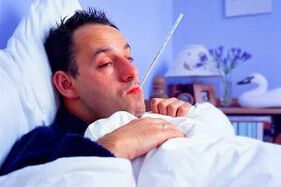
- General discomfort.
- fatigue.
- High body temperature - up to 40 degrees.
- Chills, fever.
- weakness.
- Headache.
- Frequent urination, dysuria.
- Weak or no urine flow, tk. The prostate can compress the urethra.
- Acute pain of varying intensity in the perineum, groin area, lower abdomen - depending on the location of the prostatic inflammatory foci relative to the rectum, bladder neck, urethra.
- The erection mechanism is temporarily disturbed and the potency generally decreases.
- Men's mental states are complex.
Only after accurately identifying the symptoms of acute prostatitis can a urologist prescribe the correct treatment for prostatitis.
The symptoms of chronic prostatitis are not as severe as their acute forms. Most of the time, it is characterized by the absence of any obvious symptoms or a mild, mostly localized nature. This may include:
- Drawing, mild pain in perineum and adjacent areas.
- Sex, urination, and bowel movements can make the pain worse.
- Frequent urges to go to the toilet, a feeling of incomplete bladder emptying.
- There is some discomfort during sex.
- Sexual function declines, leading to impotence.
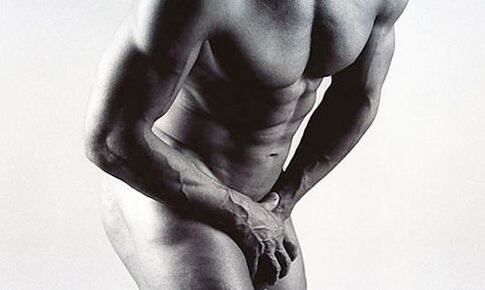
In the case of unfavorable factors, disease exacerbation can occur with all subsequent consequences. As the inflammatory process spreads widely, other organs adjacent to the prostate are also involved: epididymis, seminal vesicles, urethra, etc. , and the clinical manifestations of the disease become diverse.
Selecting the correct course of treatment and treatment for prostatitis of various etiologies requires a detailed diagnosis of the disease and a correct diagnosis. Currently, physicians have a variety of methods to detect the disease. These mainly include:
- digital examination of the prostate;
- Prostate secretion analysis;
- Bacteriological analysis of urine;
- General blood analysis;
- Ultrasonography of pelvic organs and prostate;
- nuclear magnetic tomography;
- urography;
- Computed Tomography, etc.
Modern diagnostics can determine not only the presence of a disease in a man, but also the cause and form of the disease.
General assumptions about the treatment of prostatitis
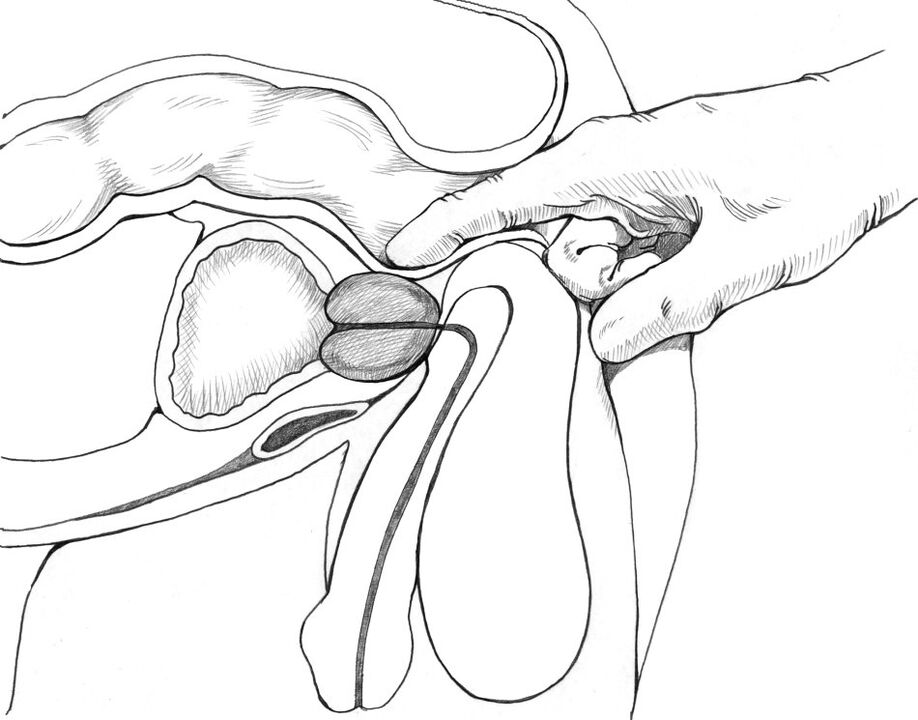
After establishing an accurate diagnosis, urologists use modern methods of treating prostatitis to develop an individual comprehensive treatment plan for each patient. It should be noted that chronic chronic prostatitis cannot be completely cured, but every effort can be made to prolong the state of remission of the disease for many years. Treatment of acute prostatitis leads to a full recovery of the patient if all the recommendations of the doctor are followed.
Comprehensive treatment of various types of prostatitis may include different combinations of the following:
- immunocorrective therapy;
- antibiotic treatment;
- hormone therapy;
- various physiotherapy;
- prostate massage;
- lifestyle changes;
- surgery etc.
Treatment of bacterial prostatitis will be different from non-bacterial prostatitis. In the first case, a course on the use of fluoroquinolone antibiotics is required, and in the second, a course on anti-inflammatory drugs. Treatment of bacterial chronic prostatitis will include antibiotic therapy and beta-blockers. Symptomatic medications, such as antipyretics and pain relievers, are often required along with the treatment of the underlying disease. Severe forms of prostatitis are treated with hormone therapy, but under the constant supervision of a doctor, in a quiescent state.
Only a comprehensive treatment approach can bring permanent good results. These areas of prostatitis treatment should now be discussed more thoroughly and specifically.
Antibacterial and hormone therapy for prostatitis
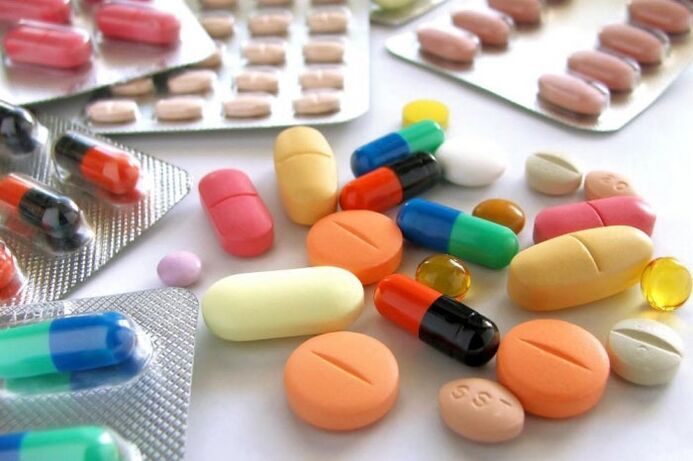
As mentioned above, in most cases prostatitis is contagious. In this regard, every patient requires treatment of prostatitis with antibiotic therapy, both acute and chronic course of the disease. Taking antibiotics can eliminate the main cause of inflammation. The following groups of drugs have been shown to be effective in treatment:
- tetracycline;
- macrolides;
- Fluoroquinolones.
Alpha-blockers are actively used in the treatment of prostatitis and are designed to relieve spasm in the pelvic organs, thereby removing swelling of the prostate and stopping the backflow of secretions to the organ. As a result, inflammation in the organ itself is reduced. It is important to take the medication long-term - up to 8 months.
At the same time, in order to improve the well-being of the patient, antispasmodics and pain relievers are required. It has been shown to help with prostatitis through folk remedies: various sedative herbal preparations, dill seeds, motherwort, valerian, etc. Micro-enemas from lemon balm or chamomile decoction are perfect for these purposes.
It is important to administer antibiotics under the guidance of a specialist, self-medication is not acceptable in this situation. It will make the situation worse. Treatment of prostatitis with antibiotics requires complete exclusion of alcohol.
It is well known that the development and function of the prostate is directly dependent on hormones: estrogen and androgen. Therefore, the treatment of prostatitis may include the use of hormonal drugs, which will reduce the size of the prostate gland and reduce the inflammatory process within it.
Phytotherapy and Prostate Massage
An important and integral part of prostatitis treatment is the use of direct prostate massage. The therapeutic effects of this massage are as follows:
- normalizes the muscle tone of the prostate;
- Improves blood supply to the prostate;
- enhance the effect of antibiotics;
- Restore the functionality of pipes, etc.

This procedure should only be trusted by professional physicians in specialized clinics.
The essence of the prostatitis treatment process is as follows: The patient has his legs shoulder-width apart, leans forward and tries to relax. The specialist spreads the patient's buttocks with one hand, gently inserts the index finger of the other hand into the rectum, massages the prostate for one minute, pressing and stroking. An effective massage should include draining a few drops of secretions into the pipe. Prostate massage process is very painful, but for the treatment of prostatitis, it is simply irreplaceable. However, prostate massage has some contraindications:
- prostate cancer;
- cyst;
- Prostate stones and some others.
Phytotherapy for prostatitis in men is an adjunct and has a beneficial effect on the end result. The essence of Chinese herbal medicine for prostatitis is external use and internal use, infusion, juice, and decoction of medicinal plants, such as calamus, St. John's wort, burdock, etc. This method has no side effects and no side effects on other organs.
Immune correction, physical therapy, and other treatments for prostatitis
Restorative therapy and immunocorrection aim to restore the entire body, strengthen the immune system and prevent future prostatitis. Doctors prescribe the intake of necessary multivitamins, minerals, and other immune-boosting substances, especially in people with chronic diseases.
Physical therapy for prostatitis should include actions aimed at activating blood circulation to the pelvic organs to enhance the effect of antibiotic therapy. These include:
- magnetophoresis;
- electrophoresis;
- Laser Treatment;
- Inrush current, etc.
At home, you can replace physical therapy with warm micro-enemas in herbal soups.
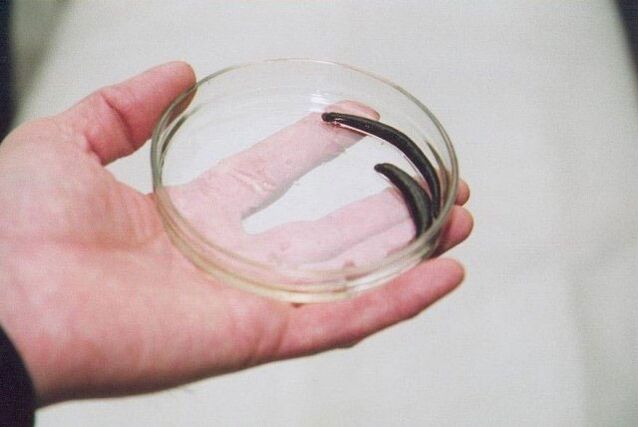
Currently, many alternative methods are used for prostatitis and treatment, which greatly expands the possibilities of modern medicine and reduces recovery time. For example, leech therapy can remove blood stasis in the pelvic organs and improve blood circulation and tissue nutrition. A course of neuromodulation therapy will effectively stop the patient's pain syndrome.
In the treatment of prostatitis, it is necessary to adhere to a healthy lifestyle. In order that the disease does not recur after acute prostatitis treatment or the remission phase does not end with chronic prostatitis, it is necessary to make major adjustments in your life to eliminate all factors that cause this unpleasant disease. Attention should be paid to regular walks, good sleep, stress-free situations, proper nutrition, and quitting smoking and drinking.
One of the treatments is surgery, which includes:
- radical prostatectomy;
- on the seminal vesicle;
- circumcision;
- urethral stricture;
- at the neck of the bladder, etc.
It should be pointed out right away that this aggressive approach is rarely used and not very effective. Surgery is prescribed when prostatitis is treated in the old form and complications arise. This method of treating prostatitis is used when conservative treatment has not brought significant results.
After treatment of prostatitis, doctors should prescribe controlled trials, on the basis of which appropriate conclusions can be drawn.
Treatment and prevention of prostatitis with folk methods
If you have symptoms of this disease, you should consult your doctor and follow all his advice. Treating various types of prostatitis with folk methods can only be used as a good supplement to basic medical measures. With enough experience in getting rid of this disease over the years, everyone can always choose the option that suits them. The main condition for the effective treatment of the disease, especially its chronic form, is the regular use of high-quality ingredients according to the prescribed recipe.
You can consider several effective recipes designed to fight prostatitis:
- Propolis (200g of sunflower oil and 30g of propolis heated in a water bath and then used to lubricate the perineum for 2 weeks).
- Honey (2 tablespoons orally 2 times a day as part of various medicinal plant juices).
- Pumpkin seeds (pumpkin seed powder 2 tablespoons before meals, 2 times a day).
Prevention after comprehensive treatment of prostatitis can consider not only proper nutrition, active lifestyle, but also regular protective sexual behavior.
Therefore, the treatment of various forms of prostatitis is always a combination of a series of continuous measures. Only by clearly following all the instructions of the specialist, you can achieve the desired results and get rid of this unpleasant disease.



















